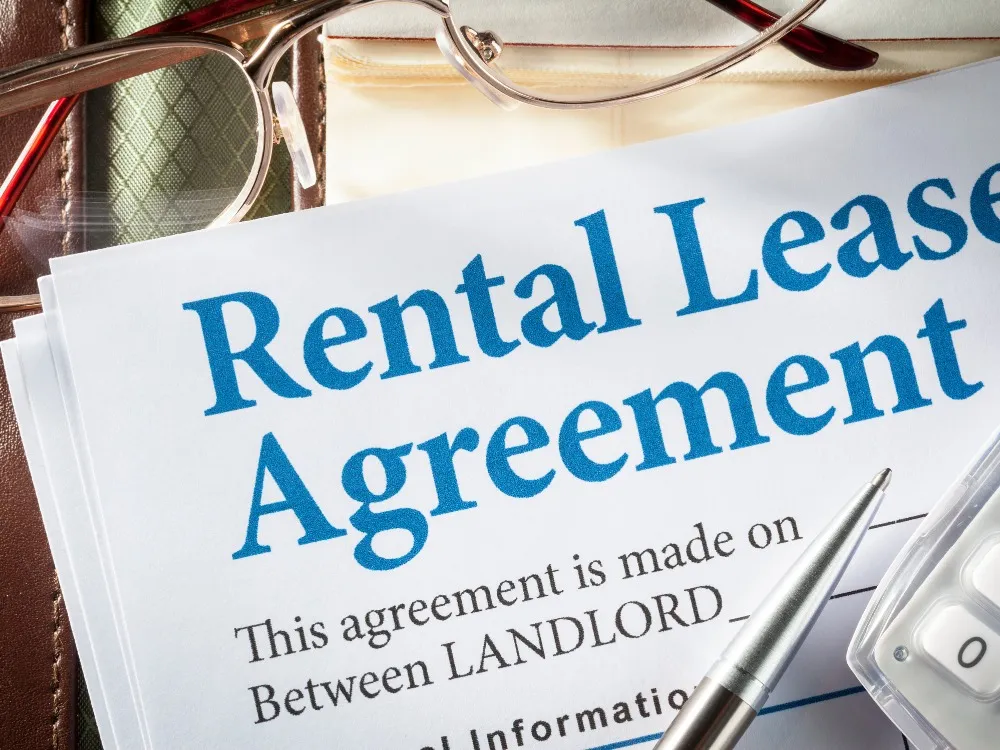Verbal Lease Agreements: Are They Legally Binding in HK?
Listen to the blog audio:
Have you ever wondered if a simple handshake and a few words exchanged with your landlord can hold up in a court of law? As a new renter, navigating the murky waters of verbal lease agreements can be daunting. Can these oral contracts provide you with the same legal protections as a written lease? In this comprehensive guide, we delve into the legal status of verbal lease agreements in Hong Kong, offering crucial insights to safeguard your rental journey.
Does a Lease Agreement Have to Be in Writing?
If you've already made a verbal lease agreement with your landlord, can it be legally protected? Many new renters have similar questions, such as whether a verbal agreement can secure breach of contract compensation or if verbal promises for sublet units are enforceable. LetsGetHome answers all your questions regarding verbal lease agreements.

Is a Verbal Lease Agreement Valid?
A verbal lease agreement is a rental contract made through oral communication rather than written documentation. Verbal lease agreements are not entirely invalid under the law. According to Hong Kong law, leases shorter than three years can be established verbally or in writing. Therefore, as long as both parties agree and fulfill their respective obligations, a verbal lease agreement holds legal weight.
For leases exceeding three years, if both the landlord and tenant are willing to adhere to the verbal agreement, it also has legal binding force. However, note that Hong Kong law requires leases longer than three years to be formalized through a deed and registered at the Land Registry.
For detailed differences between leases and deeds, refer to "Hong Kong Rental Guide: Securing a Lease & Avoiding Disputes."
Common Risks of Verbal Lease Agreements
- Fraud and Misunderstandings: Verbal agreements can easily lead to disputes due to differences in memory or intentional misguidance.
- Deposit and Rent Disputes: Without written evidence, verbal lease agreements can result in conflicts over deposit returns and rent payments.
- Difficulty in Terminating the Contract: Without a written contract, it’s hard to prove the terms agreed upon when terminating a verbal lease.
- Compensation for Breach of Verbal Contract: If one party breaches a verbal agreement, it is challenging for the other party to claim compensation.
- Backing Out of a Verbal Agreement: If either the landlord or tenant backs out after the agreement, the lack of written evidence makes legal recourse difficult.
Are Verbal Promises for Sublet Units Valid?
If the verbal lease agreement for a sublet unit meets all conditions of a "regulated tenancy" under the Landlord and Tenant (Consolidation) Ordinance, the verbal commitment for the sublet unit is covered by the ordinance.
What is a Regulated Tenancy?
A verbal lease agreement for a sublet unit must meet the following conditions to be protected under the Landlord and Tenant (Consolidation) Ordinance:
- Start Date: The lease began on or after January 22, 2022.
- Purpose: The lease is for residential use.
- Premises: The rental premises are a sublet unit.
- Tenant Identity: The tenant must be a natural person.
- Residential Purpose: The lease is intended as the tenant’s personal residence.
- Exemption: The lease is not listed under the exempt leases specified in Schedule 6 of the Ordinance, meaning it has not been exempted.
How to Protect Yourself from the Risks of a Verbal Lease Agreement
If the landlord and tenant have reached a verbal lease agreement and started fulfilling it, the tenant can request the landlord to provide a written lease agreement within 30 days to reflect the verbal agreement's terms. If the landlord does not provide a written lease agreement within 30 days, the tenant has two options:
- Withhold Rent Payments: Suspend rent payments until the landlord provides a written lease agreement.
- Terminate the Lease: Within 7 days after the 30-day period, the tenant can give the landlord a written notice of at least 30 days to terminate the lease.
How to Stamp a Verbal Lease Agreement
To have legal validity, both leases and deeds must be stamped.
For a verbal agreement, its contents need to be recorded in detail and included in the application. After reaching a verbal lease agreement, the stamping procedure should be completed within a month. The stamp duty amount depends on the rent and lease duration. Generally, the total stamp duty is split equally between the landlord and tenant. Read "Renting in Hong Kong: Online Stamp Duty Guide" for more information.
LetsGetHome: On Demand Rental Platform in Hong Kong
While verbal lease agreements have some legal effect, proving a breach can be difficult, posing significant risks to both landlords and tenants. For a more secure and hassle-free renting experience, try LetsGetHome, Hong Kong's first on demand rental platform. It offers free listing, viewing, and signing services, charging only 25% of the monthly rent as a commission upon agreement. for a safer rental process.
FAQs About Verbal Lease Agreements
Does a Lease Agreement Have to Be One Year?
The lease length can be agreed upon by both parties and doesn’t have to be one year. Typically, leases shorter than three years are established through a lease agreement.
How to Handle Situations Without a Lease Agreement?
If there’s no written lease, both parties can rely on a verbal agreement. However, note that even with a verbal lease or renewal, tenants can request the landlord to provide rent receipts, clearly stating the rent amount, lease period, and payment date. If the landlord refuses, the maximum fine is HKD 2000.
Are There Sample Lease Agreements for Regulated Tenancies?
Are There Sample Lease Agreements for Regulated Tenancies?
The Rating and Valuation Department provides sample lease agreements for regulated tenancies, which can be downloaded.






-10%202.webp?locale=en)
-8%202.webp?locale=en)
-7%202.webp?locale=en)
-9.webp?locale=en)